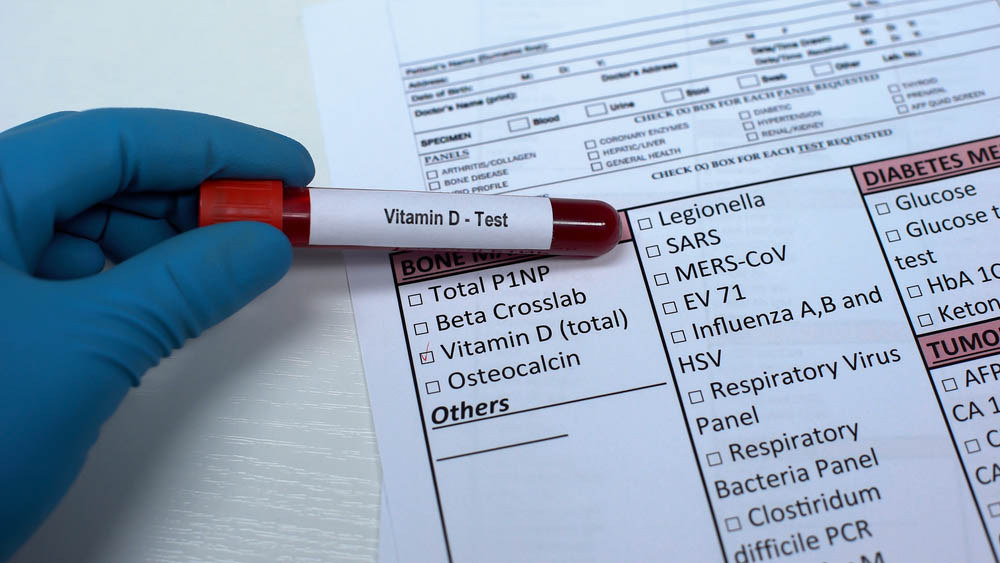Vitamin D testing helps to evaluate your individual’s vitamin D levels and overall health status. With proper testing, you can make informed decisions on appropriate treatment and management strategies.
What is it used for?
Vitamin D testing is used to determine the levels of vitamin D in the blood, which is helpful in:
- Diagnosing and monitoring bone disorders
- Assessing vitamin D levels in people with chronic illnesses
- Identifying abnormal levels that may be indicative of underlying health issues
One of the main applications of vitamin D testing is in screening and monitoring bone disorders.
Vitamin D deficiency can lead to weakened bones, softness and malformation, especially in children. By measuring the levels of vitamin D in the blood, healthcare professionals can identify if you’re at risk for bone disorders and provide appropriate treatment and prevention strategies.
Vitamin D testing is also valuable in assessing vitamin D levels in those with chronic illnesses. Chronic diseases can affect the body’s ability to absorb and utilize vitamin D, which can lead to deficiencies.
Abnormal levels of vitamin D can also be indicative of underlying health issues. Low levels may suggest problems with:
- Bone health
- Nutrition
- Organ damage
Identifying these abnormalities through vitamin D testing allows healthcare professionals to further investigate and address potential underlying health issues.
When should you get a vitamin D test?
While there are no specific guidelines on when exactly to get tested, certain factors can help determine if you should consider a vitamin D test.
One important factor is your risk of vitamin D deficiency. It’s recommended to get tested if you have known risk factors such as:
- Limited sunlight exposure
- Dark complexion
- Obesity
- Difficulty absorbing fat in your diet
Other people who may find benefits in getting their vitamin D levels checked include:
- The elderly
- Those who have undergone gastric bypass surgery
- Those who feel the signs of vitamin D deficiency
- Those with chronic conditions that affect bone health

What happens in a vitamin D test?
You can conduct a vitamin D test using at-home test kits or by going to traditional healthcare settings.
If you do the latter, trained professionals will insert a small needle in your arm to collect a blood sample from a vein. Then, they will send the blood sample to a laboratory for analysis, where the 25-hydroxyvitamin D (25(OH)D) level in your blood will be measured.
This is the most accurate way to determine your vitamin D status, and the results of the test will indicate whether you have sufficient or deficient levels of vitamin D.
While there are no specific preparations required for a vitamin D test, inform your healthcare provider about any medications or supplements you’re taking, as these may affect the test results.
Are there any risks to the test?
The process of collecting a blood sample for a vitamin D test is generally safe and carries minimal risks. While some may experience slight discomfort during the procedure, it usually takes less than five minutes to complete. However, as with any medical procedure, there’s a small possibility of complications such as:
- Bruising
- Bleeding
- Infection at the site of the blood draw
These risks can be further minimized by ensuring that the healthcare professional performing the test follows proper hygiene and safety protocols.
What do vitamin D test results mean?
Vitamin D test results provide valuable insights into your vitamin D status and can help guide appropriate treatment and management strategies.
Vitamin D deficiency may indicate:
- Lack of sunlight exposure
- Inadequate dietary intake
- Absorption issues
This can be addressed by taking supplements and dietary changes.
On the other hand, a low test result may suggest kidney or liver disease, which requires further medical evaluation and treatment.
If the test results reveal excessively high levels of vitamin D, this can be because of excessive intake of vitamin D supplements, which can lead to organ and blood vessel damage. Consult with a healthcare professional to adjust the dosage of supplements and prevent potential harm.
Understanding the meaning of vitamin D test results helps in developing personalized treatment plans and managing vitamin D deficiencies or excesses effectively.
By addressing these issues, you can improve your overall health and reduce the risk of developing bone disorders, nutritional problems or organ damage.
How frequently do you need to take the vitamin D test?
The optimal frequency of testing varies depending on factors such as age, overall health and individual risk factors for vitamin D deficiency.
For those with no known risk factors or symptoms of vitamin D deficiency, it’s generally recommended to have a vitamin D test every 1 to 2 years. This allows for regular monitoring to see to it that vitamin D levels remain within the optimal range.
However, certain populations may require more frequent testing.
These include:
- Those with conditions that affect vitamin D absorption
- Those who take medications that can affect vitamin D metabolism
- Those who are at risk of vitamin D deficiency
Is there anything else I need to know about a home vitamin D test?
While home vitamin D tests can be convenient and provide quick results, there are a few important points to keep in mind.
Choose reliable, accurate and FDA-approved home test kits to ensure their quality. Check out our online store for these home test kits.
Home vitamin D tests measure the levels of 25(OH)D in the blood, which is the most accurate indicator of vitamin D status. However, when interpreting, it should be done in the context of individual symptoms and risk factors.
Lastly, home vitamin D tests may not be suitable for everyone. Those with certain medical conditions or taking specific medications may require more specialized testing or monitoring by healthcare professionals.
If you have concerns about your vitamin D levels, consult with a healthcare professional who can help you interpret the results and provide appropriate recommendations.
Key takeaway
Vitamin D testing is an important diagnostic procedure that helps assess your vitamin D status and identify deficiencies or abnormalities.
Having deficient, low or excessively high vitamin D levels has different consequences for your health.
By regularly monitoring your vitamin D level, you can make informed decisions and follow appropriate treatment, if necessary.




















































